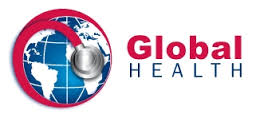full information and original link here.
King's Master's Support Scheme 2015-16
 We are delighted to announce that for this year only, up to 273 new awards of £10,000 will be available to students looking to pursue master’s study in 2015. These awards are exclusively aimed at widening access to postgraduate study and are joint-funded by the Higher Education Funding Council (HEFCE) and King’s.
We are delighted to announce that for this year only, up to 273 new awards of £10,000 will be available to students looking to pursue master’s study in 2015. These awards are exclusively aimed at widening access to postgraduate study and are joint-funded by the Higher Education Funding Council (HEFCE) and King’s.
To be eligible for the award you will need to meet the following criteria:
- Be a UK or EU citizen;
- Have been classified as ‘Home fee’ status for your chosen Master’s programme at King’s;
- Have begun your Undergraduate Degree (UG) in September 2012 or later and been charged higher fee levels at a UK university;*
- Have completed your UG degree during the 2014-2015 academic year;
- Must not already hold a master’s degree or higher level of qualification;**
- Have received, and are able to evidence for your final year of UG study:
• a Student Finance England/N. Ireland/Wales/ SAAS maintenance grant
OR
• a special support grant awarded by Student Finance England/N. Ireland/Wales/ SAAS
OR• another form of means-tested financial support (e.g. a means-tested grant from a charitable foundation, university or other public sector body); - Had a household income of less than £42,620 p.a. in your final year of UG study;
- Meet the terms of the offer for your chosen master’s degree programme at King’s College London;
- Must have completed an online application for any King's master's programme (except Dietetics and Physiotherapy pre-registration)*** starting in September 2015, by the application deadline (16.00 BST on Friday 29th May 2015);
- Must have submitted a complete scholarship application by the application deadline (tbc).
*UK University refers to any Higher Education Institution in England supported by HEFCE or a University in Scotland, Wales or Northern Ireland which has charged the student higher fees for being from other UK regions. https://www.hefce.ac.uk/
** Students who already hold a master’s degree or higher are not eligible for this funding but students who have undertaken prior postgraduate study such as PG Diplomas or PG Certificates, are eligible. Students undertaking MRes programmes comprised of taught modules are eligible, whereas students undertaking MRes programmes for which a majority of the degree is based on independent research and is categorised as a research degree are not.
*** includes LLM, MA, MSc, MMUS, MClinDent, MPH and MRes. Does not include PG Cert, PG Dip or PGCE.
Please check your eligibility carefully before applying.
Applications are now open and will close at 16:00 BST on Friday 29th May 2015.
In order to be considered for the award, you must:
1) Have submitted a complete online admissions application for a postgraduate master's programme at King’s College London before the application deadline.
Admissions applications must be ‘complete’ in order for an application to be considered for funding, and for an admissions application to be deemed ‘complete’ it must contain all the relevant supporting documentation, such as references, transcripts, and English language scores, where applicable. It is your responsibility to ensure that all supporting materials are submitted to King’s by the funding deadline.*
AND
2) Submit a specific online scholarship application before the application deadline, together with the required supporting documentation.
Failure to submit both application forms and the supporting documentation by the deadline will result in the application being considered ineligible.
*If you have already applied for admissions, or hold a place but deferred entry to 2015/16, you will not be required to submit an admissions application again.
You will be required to submit supporting documentation which will demonstrate you meet the eligibility criteria as follows:
A) You will be asked to provide evidence to confirm that you were paying the higher tuition fee rate (£6,000 - £9,000 per year), either in the form of a funding letter, tuition fee invoice or similar documentation from your undergraduate university.
B) If you received a Student Finance England/N. Ireland/Wales/ SAASmaintenance grant, or a special support grant awarded by Student Finance England/N. Ireland/Wales/ SAAS then you will be required to submit the following:
- all pages of your Student Finance England/N. Ireland/Wales/SAAS entitlement letter for your final undergraduate academic year (e.g. 2014/2015) showing any support awards. This document must contain your name for verification purposes. If you cannot find a copy of the document please access your on-line student finance account to download or print off another copy.
C) If you received another form of means-tested financial support (e.g., such as a means-tested grant from a charitable foundation, university or other public sector body) then you will be required to submit the following:
- a copy of a P60 or a statement of earnings from HMRC for the 2014/15 tax year, along with the full documentation used for the funders financial assessment AND full details of the award provided.
D) If you have you spent time in Local Authority Care, Kinship Care or received support from the Foyer Federation, you will be required to provide Local Authority (or equivalent) confirmation of the exact dates spent in care or similar confirmation from the Foyer Federation.
E) If you have a recognised disability for which you received a Disabled Student Allowance (DSA)from Student Finance England/N. Ireland/Wales/SAAS, you will be required to provide Student Finance England/N. Ireland/Wales/SAAS correspondence confirming DSA entitlement.
F) If, during 2014 or 2015, you have been in receipt of a Carer’s Allowancebecause you have caring responsibilities for an ill or disabled family member, you will be required to provide evidence that you are in receipt of a Carer’s Allowance or a notification letter from your Local Authority.
If you have any queries about this scheme, please refer to the FAQs page in the first instance.
Why not watch our postgraduate funding webinar for an overview on what scholarships are available, what to do before you apply for a scholarship and for answers to some frequently asked questions?





